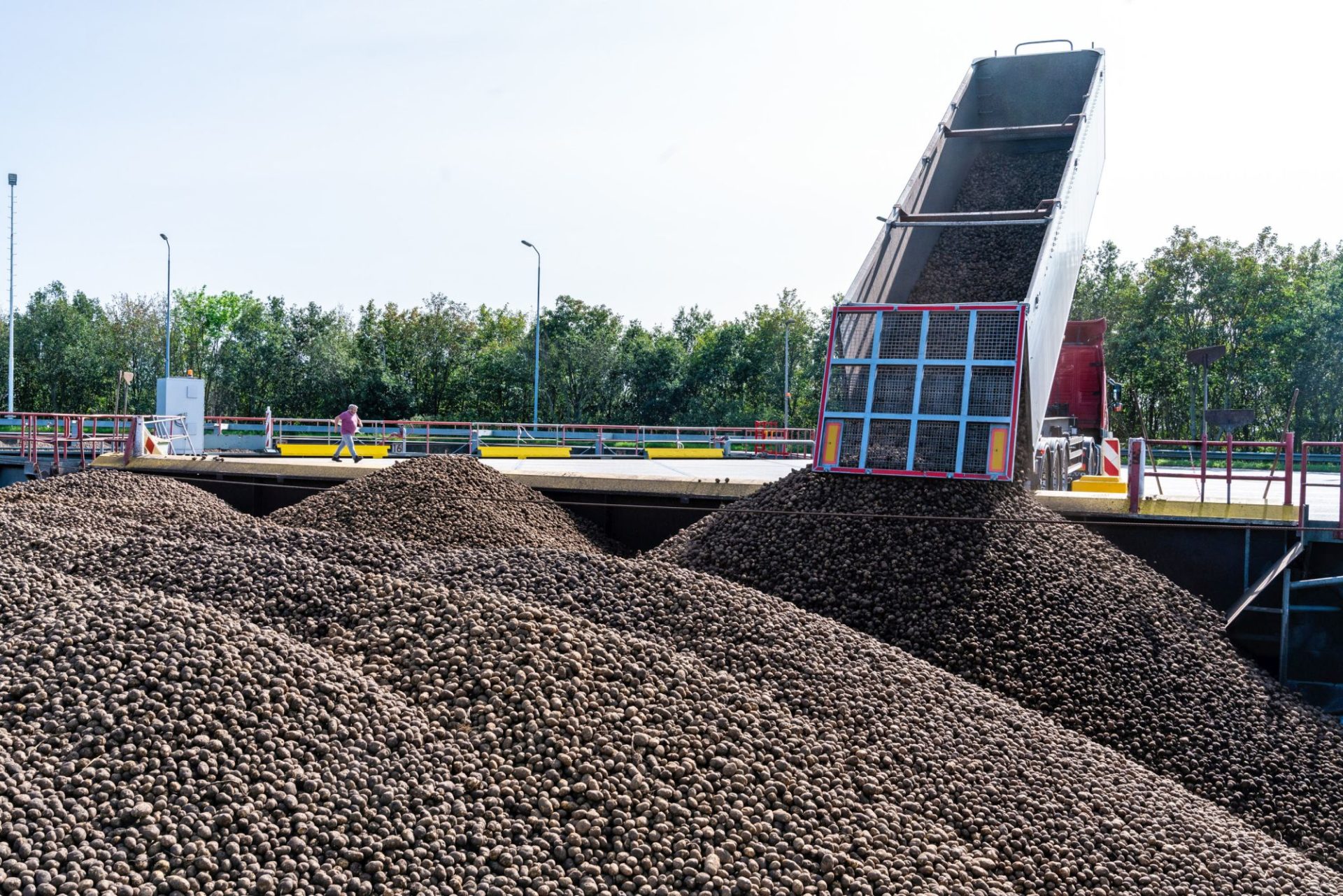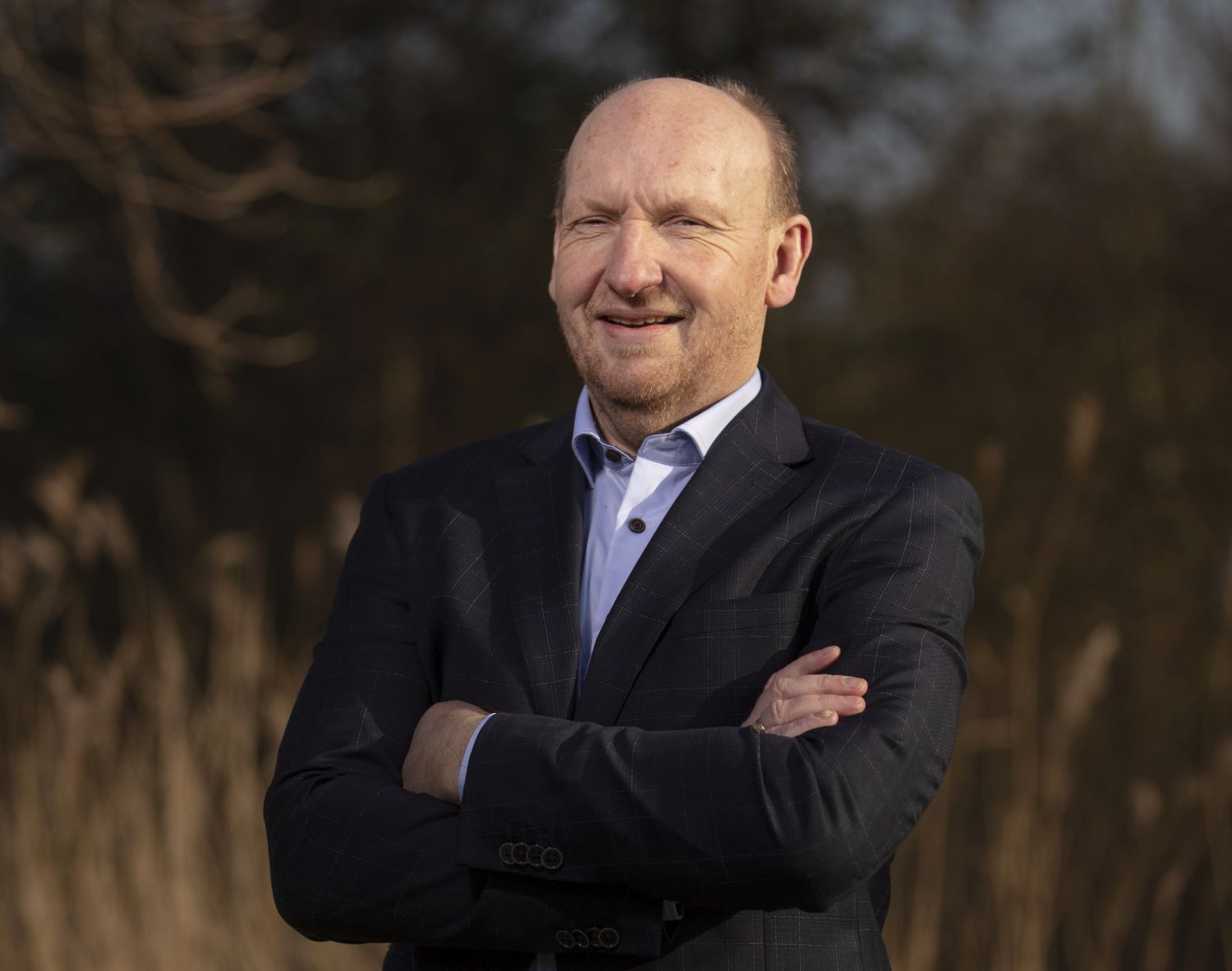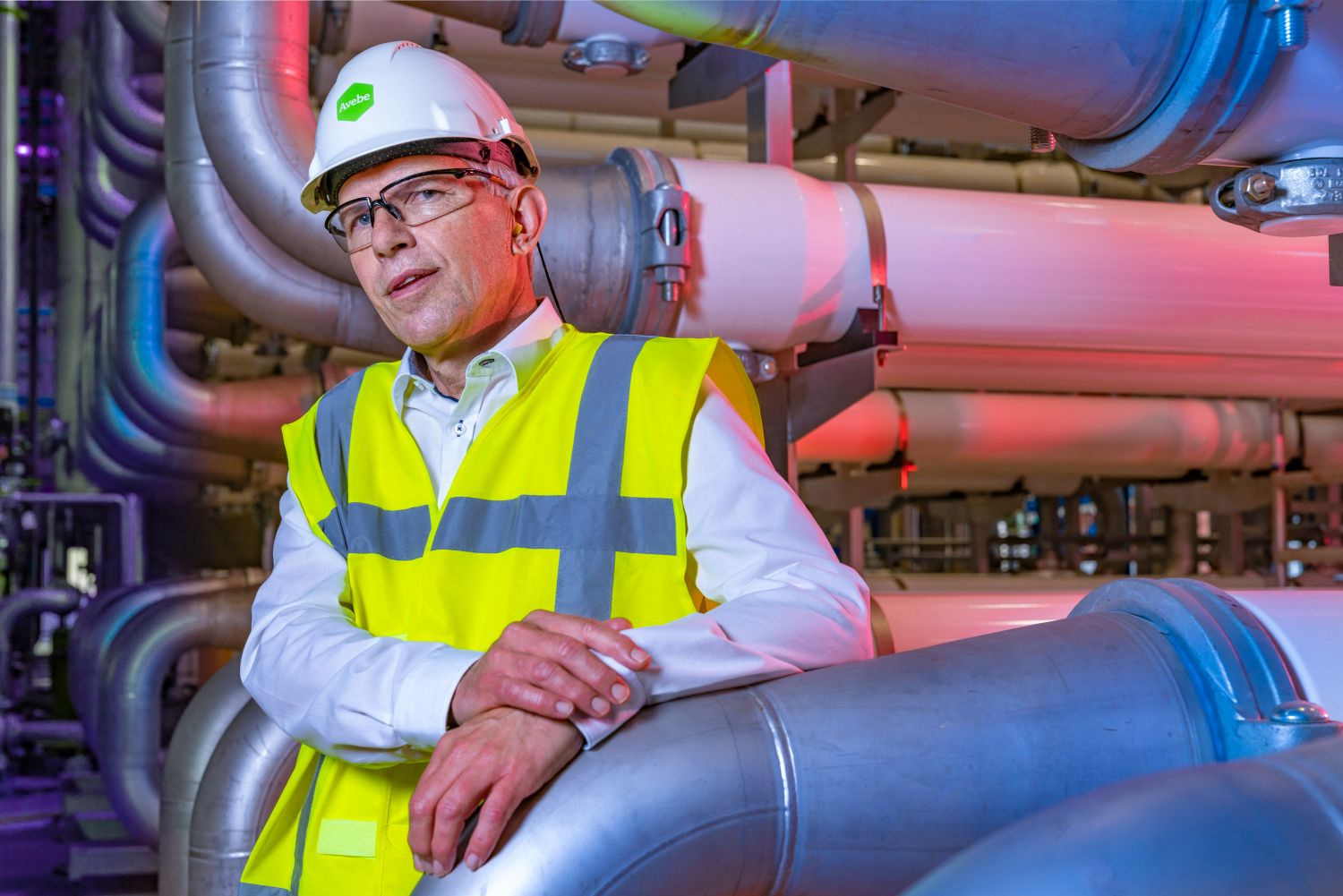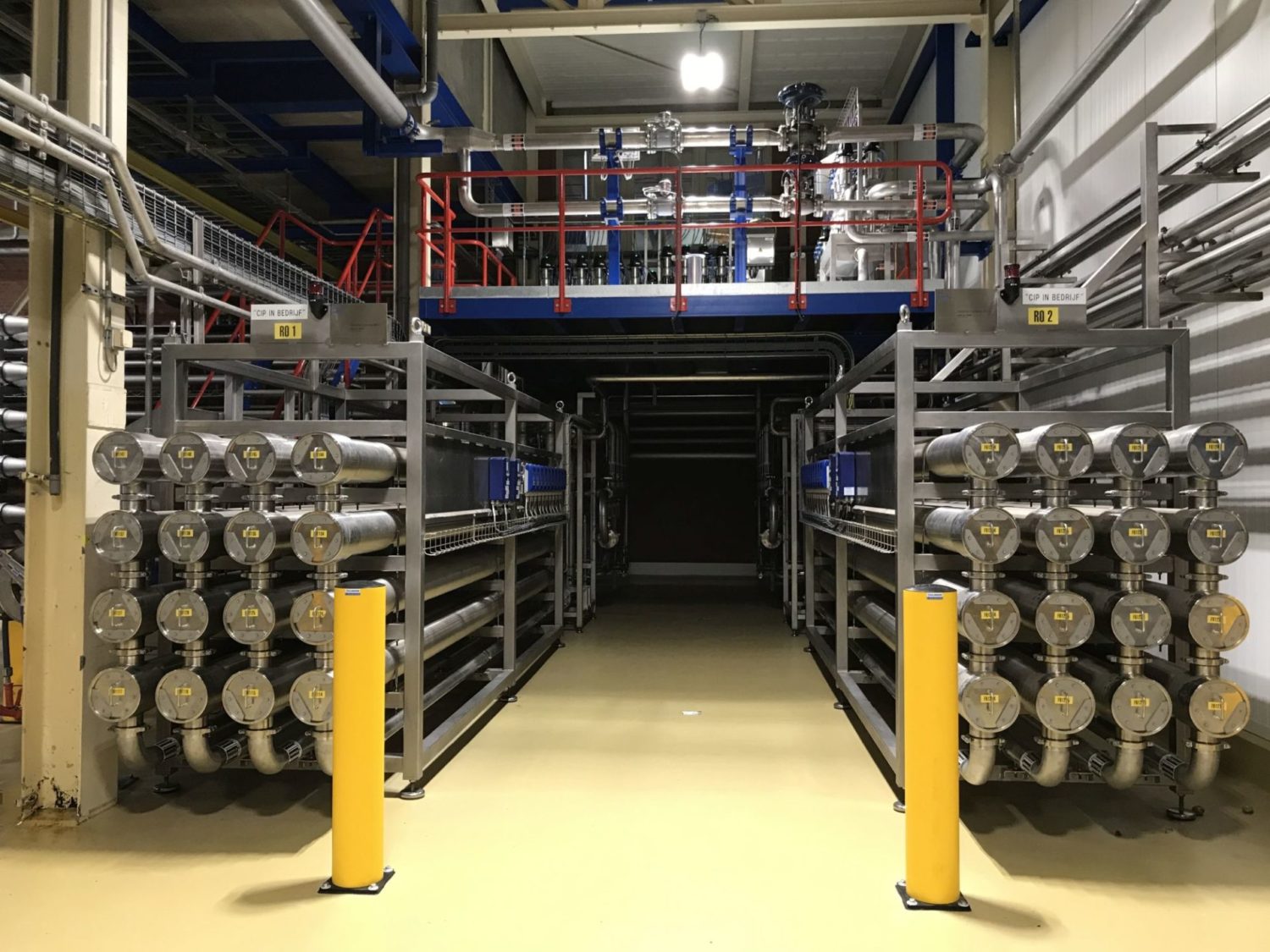Avebe extracts everything it contains. So in addition to starch, the company also extracts protein from the potato. However, this protein extraction is quite an energy-intensive process. Until recently, that is. Because together with Wafilin Systems, Avebe came up with a sustainable and circular solution, the so-called DUCAM project. A story about membrane technology, significant energy and water savings and a substantial CO2 reduction.
Avebe processes millions of pounds of potatoes every year. Until not so long ago, the focus in doing so was exclusively on starch production. Nowadays, the company, which has been allowed to use the Royal designation since 2019, is increasingly focusing on protein extraction. Because innovative techniques make that process easier, but especially because the demand for vegetable proteins is rapidly increasing.
Large volume flows
First some background: a potato consists of 75 percent water, 20 percent starch, 1.5 percent protein, 1 percent fiber and 2 percent residue. At first glance, that percentage of protein dissolved in the potato juice seems small. But a considerable amount of protein can be extracted from the large volume of potatoes. 'Extracting protein is done at our production site in Ter Apelkanaal by boiling the potato water, which causes the proteins to flocculate,' says Erik Koops, director of Energy Transition & Utilities at Avebe. 'The remaining juice is then evaporated to Protamylasse, a syrupy product used in animal feed, among other things.' Every year about a billion liters of potato juice is boiled and evaporated in Ter Apelkanaal. Processing those large volume streams is quite an energy-intensive process.
And yes, that doesn't really fit with a company that has sustainability high on its agenda. 'So we started thinking about how to reduce the energy and water consumption of that process,' Erik says. 'Then we thought of concentrating the potato water, before we heat and evaporate it, using membrane technology.'

New attempt
The use of membranes is not entirely new for Avebe. Years ago, the technology was also used to concentrate potato juice. At that time, unfortunately, without the desired result. The degree of concentration was quite limited and the costs relatively high. Moreover, the potato juice had a strong polluting effect on the membranes, which meant that they often had to be replaced halfway through the potato campaign.
'Still, we thought it was worth making a new attempt,' Erik emphasizes. 'Simply because we knew that membrane technology had developed considerably over the years. Hence, in 2015 we contacted Wafilin Systems, a Leeuwarden-based company that specializes in developing, designing and supplying membrane filtration systems for the food and dairy industry. Wafilin Systems was also involved in membrane technology at Avebe in the past. So they were familiar with potato juice and the processes within our company.'
Promising
The renewed cooperation with Wafilin Systems marked the start of a sustainable alternative route, known as the DUCAM project. DUCAM stands for Sustainable Concentration of Potato Juice with Membranes. What followed was a lengthy research process. Eventually, Wafilin Systems and Avebe together succeeded in finding the right membranes and developing the best possible process control and cleaning methodology. The new membrane installation was realized by the Leeuwarden-based company in 2018, in close cooperation with various regional partners including Westra RVS, Kampen Industrial Care and Beenen Industrial Automation.
'We arrived at a combination of ultrafiltration and reverse osmosis,' explains Henk Schonewille, CEO of Wafilin Systems. 'The new membrane installation is integrated between the collection of the potato juice and Avebe's existing plant. How exactly does it work? Using ultrafiltration, the juice is concentrated by about a factor of three. This reduces the volume flow from 240 cubic meters per hour to 80 cubic meters. Therefore, much less juice needs to be heated and evaporated to extract the proteins.
The water extracted with ultrafiltration then passes through an even finer filter. This is called reverse osmosis, which also retains minerals and other components. This allows the water that was originally in the potato to be reused as clean process water by Avebe.'

Henk Schonewille, CEO Wafilin Systems
Operational
DUCAM has been operational since the beginning of December 2019. However, due to the dry summer that year, a quarter fewer potatoes were produced than in previous years. 'Normally we run as normal during Christmas,' says Erik. 'Now we had to go out for two weeks around Christmas due to the poor harvest. The campaign was already finished in February 2020, so we had no time for further process optimization.
Nevertheless, we are more than satisfied with the results. During the entire protein extraction process in Ter Apelkanaal, we now save 30% in energy and also almost half a million cubic meters of water on an annual basis. Our goal is to save some 13,000 tons of CO2 annually. Currently, we are already at 60% of that. In other words, we are well on the way to actually achieving our sustainable ambition. So it's not surprising that we are also going to apply the DUCAM technology at our other production sites.'
Water Innovator of the Year
Also nice: last Feb. 11, the DUCAM project was named "Water Innovator of the Year 2021" during the online conference of Water Vision 2021. A prestigious award given to innovations that make the use of (industrial) water cheaper, more sustainable or more efficient. 'It is the crowning glory of a fantastic collaboration,' says Henk proudly. 'With Avebe, but certainly also with all the partners who were involved in the project. Without them we would never have got it done. It really is a team effort.

Erik Koops, director Energy Transition & Utilities Avebe
Arnold bakker, managing director Kampen Industrial Care
'In the DUCAM project,Kampen Industrial Care was responsible for the mechanical part of the installation. To be precise: for the connecting piping between all the parts supplied by Wafilin, such as the pumps, tanks and filters. For Avebe, we have been the house contractor for years when it comes to mechanical engineering. That means that we connected the membrane installation to drain lines that we had once installed ourselves.
The entire project went extremely smoothly, that is, without any significant complications. That had everything to do with the cooperative attitude of Wafilin Systems. It really was shoulder to shoulder. Together with Wafilin Systems, Avebe and the other contractors, we have created something very beautiful. An innovative membrane installation that does what it is supposed to do and also looks great.
Harry van Wieren, account manager Beenen Industrial Automation
'We have done more at Avebe in the past, but DUCAM was a very unique project. Quite a job, that's for sure. Also because the installation work, our expertise, had to meet extremely strict hygiene requirements. That required a lot of attention to the field cabinets, cable routes and the assembly methods used in the construction of the membrane plant. The cabling, for example, had to be mounted in such a way that no dust or other dirt was left behind. In addition to a beautiful end result, the DUCAM project also resulted in a nice cooperation with Wafilin Systems. We now also enjoy working together on other projects. We have really found each other.
Renze Westra, managing director Westra RVS
'Together with Wafilin Systems, with whom we have a long relationship, we have been active at Avebe for quite a few years. For Wafilin Systems we are an important partner for the construction of membrane plant systems, so also in the DUCAM project. In the project, we were responsible for building the membrane skids, the filter installation. The great thing was that we could build the installation completely in our factory in Elahuizen. This logically involved high demands on the quality of the welding. This is especially important with a view to cleanability and preventing contamination and the growth of bacteria. Whether we are proud of the result? On a banner hanging outside our
our company is a picture of Avebe's membrane installation. That says enough, I think.'
Answer 4 simple questions to quickly find out if you may qualify for funding through NOM.
